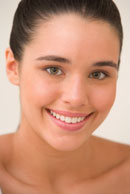
Resorcinol
Rated: 3.5 out of 10
by BestAcneTreatments.org
Resorcinol is a topical keratolytic -- which means it breaks down hard, scaly and/or dead skin. Keratolytics help to resurface the skin by removing any dead, roughened tissue. Resorcinol helps break down hard, rough skin, which means it excels at breaking down existing blackheads and whiteheads. It is also used to treat corns, calluses, and warts -- more or less any unwanted accretion of skin cells.
Resorcinol is not only used to treat acne, but also eczema, psoriasis and other skin conditions. It is sometimes combined with other acne medications, usually sulfur, and rarely stands alone. Although it is combined with other medications, resorcinol can cause topical sensitivity and should be combined with other products under your doctor's orders.
News Subscribe

 How to use resorcinol
How to use resorcinol


Resorcinol is sold in lotion or ointment form. Either type should only be applied to clean, dry skin. Your doctor will prescribe a dosage as well as a frequency (these vary based on the severity of your acne).
Because it is already potentially irritating, sometimes causing redness or peeling of the skin, it is good to avoid other irritating soaps and cleansers, astringents or alcohol products, and also other medications. Only combine resorcinol with over-the-counter skincare products approved by your doctor. Avoid any abrasive and/or drying products (alcohol-based astringents, for instance). Don't combine resorcinol with peeling agents (AHAs, tretinoin or benzoyl peroxide).
Recommended acne treatments
Learn which anti-acne treatment is recommended!



